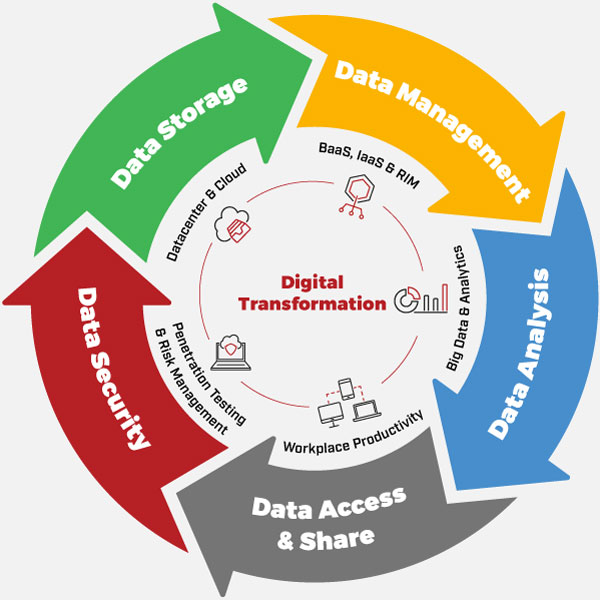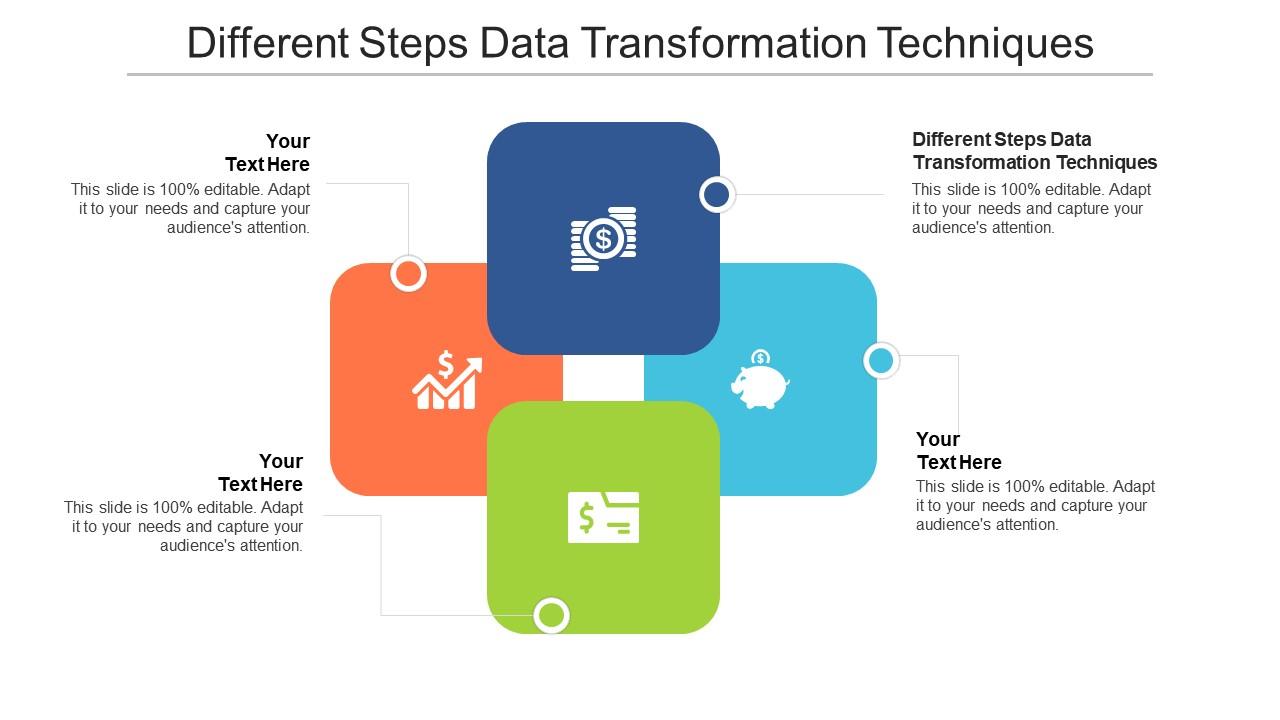Introduction to Data Transformation
Data transformation is the process of converting data from one format or structure into another. Data transformation process is a crucial step in data management and analytics. It's like taking raw ingredients and turning them into a delicious meal. Without this step, your data can be messy and hard to use.
Importance of Data Transformation in Modern Business
In this section, you’ll find the importance of data transformation process in modern business.
Improving Data Quality
Accuracy: Removes errors and inconsistencies.
Consistency: Standardizes data from various sources.
Completeness: Fills in missing information.
Enabling Better Decision-Making
Data Insights: Provides clear, actionable insights.
Trend Analysis: Identifies patterns and trends.
Informed Strategies: Helps in forming effective business strategies.
Enhancing Customer Understanding
Customer Behavior: Analyzes buying patterns.
Personalization: Enables tailored marketing efforts.
Customer Satisfaction: Improves service and products based on feedback.
Streamlining Operations
Efficiency: Automates data handling processes.
Productivity: Reduces manual work, saving time and resources.
Operational Insights: Helps optimize business operations.
Supporting Compliance and Reporting
Regulatory Compliance: Ensures data meets legal standards.
Accurate Reporting: Produces reliable reports for stakeholders.
Transparency: Maintains clear and accessible data records.
Facilitating Integration and Collaboration
Data Integration: Combines data from different departments.
Collaboration: Makes it easier for teams to work together.
Unified View: Provides a comprehensive view of the business.
Enabling Advanced Analytics and Machine Learning
Big Data: Makes large datasets manageable.
Predictive Analytics: Improves forecasting and predictions.
Machine Learning: Provides clean data for training algorithms.
Driving Business Growth
Market Opportunities: Identifies new opportunities.
Competitive Edge: Gains advantages over competitors.
Innovation: Supports the development of new products and services.
Key Concepts in Data Transformation
Now it's time to know the key concepts in the data transformation process . So check the out difference between data transformation and data integration.

Data Transformation vs. Data Integration
Data transformation and data integration are often mentioned together but they serve different purposes. Let's break them down:
Data Transformation
What it is: Changing data from one format or structure to another.
Why it matters: Ensures data is clean, consistent, and ready for analysis.
Data Integration
What it is: Combining data from different sources into a single, unified view.
Why it matters: Provides a comprehensive view by merging different datasets.
Data transformation focuses on altering the data itself. Data integration is about bringing together data from different places.
Common Data Transformation Techniques
Data transformation involves several techniques. Here are the most common ones:

Data Cleansing
Purpose: Remove errors and inconsistencies.
How it's done: Correcting typos, filling missing values, and removing duplicates.
Data Normalization
Purpose: Adjust data to a common scale.
How it's done: Scaling numbers to a standard range, like 0 to 1.
Data Aggregation
Purpose: Summarize data for easier analysis.
How it's done: Combining data points to get totals, averages, or counts.
Data Encoding
Purpose: Convert data into a different format.
How it's done: Turning categorical data into numerical values.
Data Enrichment
Purpose: Enhance data with additional information.
How it's done: Adding geographical data or external insights to existing data.
Data Filtering
Purpose: Extract relevant data based on criteria.
How it's done: Selecting data points that meet specific conditions.
Data Splitting
Purpose: Divide data into subsets for analysis.
How it's done: Separating data by date ranges or categories.
Data Shaping
Purpose: Rearrange data structure for specific use cases.
How it's done: Pivoting tables, reshaping rows and columns.
Suggested Reading : Data Mining
Tools and Technologies for Data Transformation
There are key tools and technologies for data transformation process, like:
Popular Data Transformation Tools
Transforming data is crucial in today's data-driven world. Here are some popular tools that make this process easier and more efficient:
Talend
What it is: An open-source data integration tool.
Key Features: Data cleansing, real-time data integration, and big data capabilities.
Apache Spark
What it is: An open-source unified analytics engine.
Key Features: In-memory data processing, speed, and support for complex transformations.
Alteryx
What it is: A commercial data analytics platform.
Key Features: Drag-and-drop interface, data blending, and advanced analytics.
Informatica
What it is: A commercial data integration tool.
Key Features: Data quality management, cloud data integration, and scalable architecture.
Microsoft Power BI
What it is: A business analytics tool.
Key Features: Data visualization, real-time dashboard updates, and interactive reports.
AWS Glue
What it is: A cloud-based data preparation tool by Amazon.
Key Features: Serverless, automated schema discovery, and data catalog.
Suggested Reading : Data Set
Open-Source vs. Commercial Data Transformation Tools
When choosing a data transformation tool, it's essential to understand the differences between open-source and commercial options.
Open-Source Tools
Open-source data transformation tools are:
Cost: Free to use, which is great for tight budgets.
Customization: Highly customizable; you can tweak them to fit your specific needs.
Community Support: Strong communities offer support, plugins, and updates.
Examples: Apache Spark, Talend.
Commercial Tools
Commercial data transformation tools are:
Cost: Requires purchasing licenses, which can be expensive.
Support: Comes with professional customer support.
Features: Often has more advanced features and regular updates.
Examples: Alteryx, Informatica.
Frequently asked Questions(FAQs)
Why is data transformation important?
Data transformation is crucial for data quality, compatibility, and efficiency, ensuring that diverse data from various sources becomes uniform and suitable for analytics, thus enabling accurate decision-making.
What are the common types of data transformation process?
Common types include normalization, aggregation, validation, cleaning, join, and transposition, each serving a specific purpose in making data more usable and insightful.
How does data transformation affect data quality?
By removing errors, inconsistencies, and redundancies, data transformation significantly enhances data quality, making it more accurate, reliable, and suitable for strategic insights.
What tools are used for the data transformation process?
Tools range from simple spreadsheets like Microsoft Excel to sophisticated software like Informatica, Talend, and specialized programming languages such as SQL and Python, depending on the complexity of the task.
Can data transformation help with data visualization?
Yes, transforming data by categorizing, sorting, and summarizing it can greatly enhance the effectiveness and clarity of data visualization, enabling better insights and understanding of the data presented.
